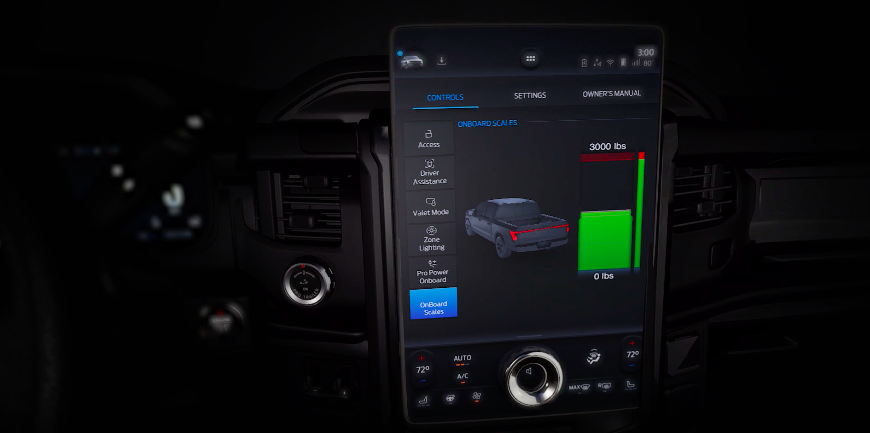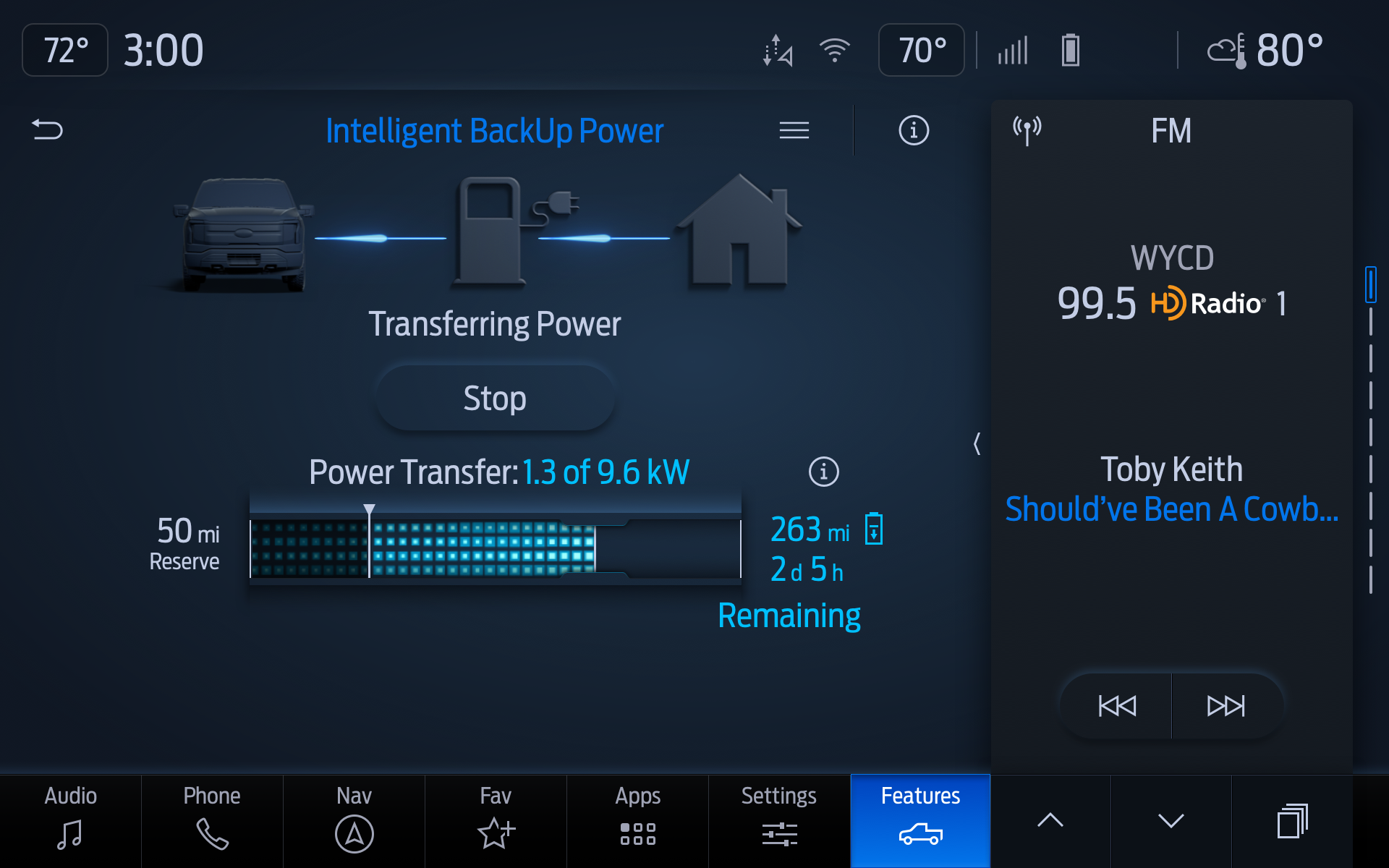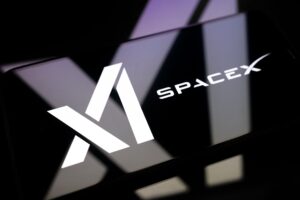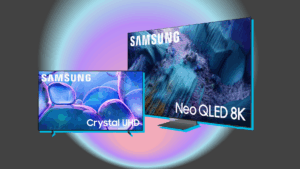
Ford’s F-150 Lightning pickup truck will display more than just how much charge is left on an electric battery.
Inside, the digital experience on the 15-inch screen front and center of the electric truck will liven up charging, lighting, and towing with animations, high-res graphics, and even some gamification. It’s a different direction from most EVs that emphasize minimal, sleek experiences.
The Ford F-150 Lightning, with a $39,974 base version boasting 230 miles of range, is open for online reservations, but it hasn’t started production; deliveries are expected to arrive later in 2022. To even catch a glimpse of Ford’s first electric F-150 you’ll have to wait for test drives and demos. Until then, Ford sent over some of the screen displays that drivers will interact with for different features.
Mark Sich, design manager of the Lightning digital experience, explained the vertical touchscreen and digital cluster behind the steering wheel showcase what he calls “functional technology — not technology for technology’s sake.”
What does that mean for an electric truck? “Truck drivers always want to have an understanding of what the vehicle is doing,” he said. So on the screen there’s real-time information about all the moving parts. Here’s some of what we saw.
Gauges for everything
Lightning drivers will have the opposite of the minimalist screen with a simple layout showing range and battery level in Ford’s other new EV, the Mustang Mach-E. Instead the Lightning will show everything from battery charge level, real-time power consumption, regenerative braking energy levels, battery temperature, and even motor temperature.
Here’s what the screen behind the steering wheel looks like while driving:
When braking, it’s something of a game to see how much energy you can recoup into the battery every time you stop or slow down the car.
It may seem like too much information, but Sich said they wanted drivers to know as much as possible about their driving’s effect on the battery. The designers considered data Ford collected from current and prospective truck owners.
Drive modes
This is where driving the Lightning will get fun, or at least more like a video game. The screen to select how you want the car to perform is like creating your player. A mini, animated version of the truck is previewed above the different modes (normal, sport, tow/haul, and off-road).
Each mode determines how much battery power is used, so choose wisely. (Or just go with your favorite color; that’s my usual method during a rare video game session.)
Hauling a load
“Truck customers want to haul things,” Sich noted. But hauling heavy loads while in an electric vehicle has a direct effect on the car’s performance. A heavy load can throw off range estimates and charging plans.
So the Lightning considers how much weight is in the entire vehicle and behind it. Built-in scales and sensors detect how heavy the truck is at any moment. It then modulates the range estimate and connects with the navigation system to let you know if you’ll make it to your destination or will need to plan for a “fill up” charging session.
“You don’t have to keep looking over to see if you have enough charge to make it to the destination,” Sich said.
Zone lighting
The truck is also handy once you’ve turned off the engine. With zone lighting the Lightning can light up a 360-degree area outside the truck. To control the lights around the car, touch an interactive model of the truck on the touchscreen where you want more or less light.
Here’s what zone lighting looks like on the screen:
Bi-directional power
If the electricity goes out at home, the F-150 Lightning is a backup power source.
No need for a generator: The battery in the Lightning can supply enough power for home appliances and air conditioning or heating for three days (and even longer if you modulate home energy use during the outage).
It’s a complicated power transfer that can switch on automatically with the right home charging setup. A screen in the car lets you monitor how much power is going to the house, and also track how much time you have left. You can set it up to make sure the car battery doesn’t completely deplete. On the screen below you can see that 50 miles of battery range are on “reserve” and can’t be used to power the house.

Credit: Ford
The user experience is clear-cut with big graphics, since the feature kicks in during hectic emergency situations.
Once the F-150 Lightning starts delivering, drivers will notice more “micro-animations” sprinkled throughout the driving experience, like an opening and goodbye sequence that appears on the screens at the start and end of every drive.






